excd.lab current members
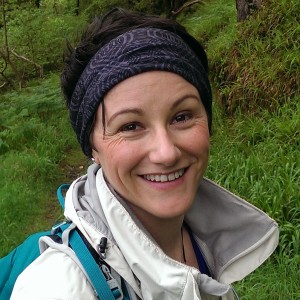 Prof Fiona Jordan
Prof Fiona Jordan
Principal Investigator, excd.lab
Professor in Anthropology, Department of Anthropology & Archaeology
Evolutionary and linguistic anthropology, cultural phylogenetics, kinship, cross-cultural research, Austronesian languages, Pacific culture and prehistory, cultural evolution and transmission, accents, storytelling, ethnobotany, counting systems, cognition and behaviour.
Personal web page
fiona.jordan@bristol.ac.uk
@fiona_jordan
 Simon Bishop
Simon Bishop
PhD student
Cultural adjustment, phenomenology, cultural diversity, internationalization, intercultural communication.
I’m currently researching the cultural adjustment of international students in the UK using a phenomenological approach, that is, concerned with the subjective, meaning-making processes behind making a life for oneself in a new country. Related to this, I am also interested in the discourses around culture and cultural diversity in academic, institutional and ‘everyday’ usage, and the apparent gaps between these domains.
affiliates
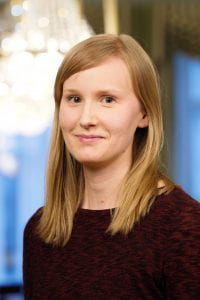 Dr Terhi Honkola
Dr Terhi Honkola
KINURA Project Lead, U Helsinki
Previous Research Associate on VariKin Project
Evolutionary biology; phylogenetics; population genetics; Uralic languages
My background is in evolutionary biology but for the last decade I’ve been applying quantitative methods from evolutionary biology to language data, in an effort to better understand the past of languages, humans, and the role of environmental conditions therein.
Jo Hickey-Hall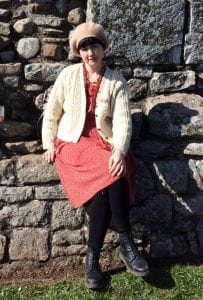
Previous Research Support Assistant, VariKin Project
Folk-tales, cultural transmission of supernatural belief, cultural connection with landscape.
I’m a social researcher and folklorist with a long-held interest in the relationship between supernatural experience, local landscape and oral tradition. I am particularly inspired by the survival of oral lore in rural communities and the cultural taboo that appears to exist around fairy belief. My Grandparent kin term study with the VariKin Project focuses on the sociolinguistic and family-specific causes of variation in English grandparental terms of address.
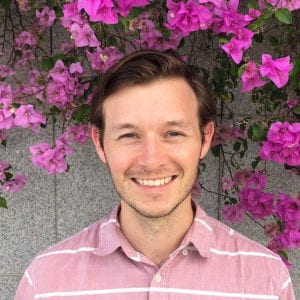 Sam Passmore
Sam Passmore
PhD student, Varikin
I am broadly interested in the global diversity of cultural traits and offering evolutionary explanations. My work in EXCD and the VariKin project explores the diversity of kinship terminologies around the world through the use of comparative statistics and phylogenetics.
Personal web page
Google Scholar
Dr Seán Roberts
Lecturer, School of English, Communication and Philosophy, Cardiff University
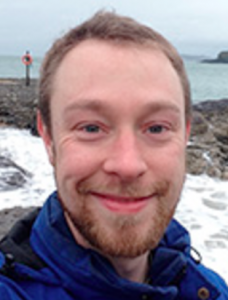
Evolutionary linguistics; Interaction; Statistical modelling; Phylogenetics.
I’m an evolutionary linguist. I use a range of quantitative methods and approaches to understand how languages emerged and how they change. I’m interested in how languages adapt to individual cognition, interaction and their wider ecology. I’ll be working on new statistical techniques to discover causal links in cross-cultural observational databases.
Sean created and maintains CHIELD: the Causal Hypotheses In Evolutionary Linguistics Database hosted by EXCD.lab. It’s a collection of over 400 hypotheses about how language originated and how it changes, expressed as causal graphs. Go to https://chield.excd.org to find out how you can explore the database and contribute your own hypotheses.
Personal web page
@aucksadventures
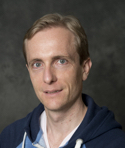
Dr Robert Ross
Honorary Research Associate, Department of Psychology, Royal Holloway, University of London
Belief formation, delusional belief, religious belief, reasoning, cultural evolution, folktales.
I am a cognitive psychologist. My primary research interest is belief, particularly delusional belief and religious belief. I also undertake cultural evolutionary research with a focus on folktales and languages.
Personal Web Page
Google Scholar
Dr Alice Mitchell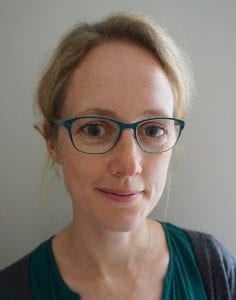
Junior Professor, affiliation Institute of African Studies, University of Cologne
Linguistic anthropology, pragmatics, interactional sociolinguistics, human sociality, African languages and cultures.
I’m a linguistic anthropologist interested in how speakers of different languages use their linguistic resources to negotiate social relationships in everyday interaction. I work on a Nilotic language called Datooga, spoken in Tanzania, and use video-based ethnographic and linguistic methods to explore how Datooga people create particular relationships (of kinship, friendship, intimacy, distance) through their language use. As part of the VariKin project, I studied how Datooga children acquire and develop an understanding of kinship concepts.
Dr Catherine Sheard
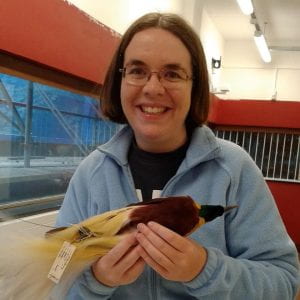 Research Associate, School of Earth Sciences, University of Bristol
Research Associate, School of Earth Sciences, University of Bristol
Phylogenetic comparative methods, cultural macroevolution, macroecology
I am an evolutionary biologist interested in the heterogeneity of diversity across space and time. My research spans the fields of macroecology, macroevolution, and behavioural ecology, and though birds are my main study system, I’ve also worked with mammals, fish, spiders, and human languages.
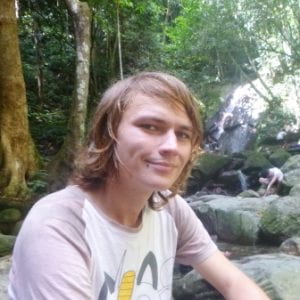
Dr Daniel Smith
Research Associate, ALSPAC, University of Bristol
Human behavioural ecology, Evolution of cooperation, Hunter-gatherers, Storytelling
I am an evolutionary anthropologist primarily interested in human cooperation. My research focuses on hunter-gatherer cooperation, the development of cooperation in children, and the evolution of storytelling. I currently work on the ALSPAC project at the University of Bristol.
University of Bristol Profile
Google Scholar
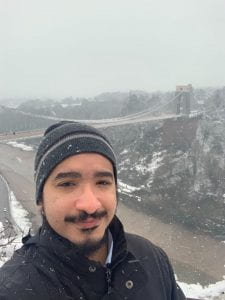
Shaun Stanley
PhD student, Department of Philosophy, University of Bristol
Philosophy of science, philosophy of biology, philosophy of social science
I’m a philosopher, and I’m intrigued by the significant philosophical and conceptual controversy regarding the relationship between cultural evolutionary theory and non-Darwinian social sciences. My work aims to clarify these philosophical concerns in order to better understand what cultural evolutionary theory is and the various ways in which it, and its theoretical tools, can benefit non-Darwinian social sciences.
Arsham Nejad Kourki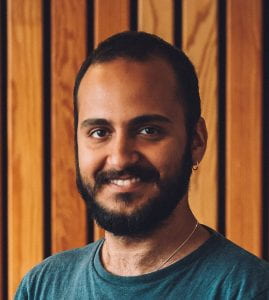
PhD student, Department of Philosophy, University of Bristol
Boundaries between philosophy and biology, relationships between genetic and morphological homology
I’m broadly interested in the evolution of complex organisation from simple organisation in biological as well as social systems. I am currently doing a PhD on the early evolution of animals, focusing on the evolution of body plans. Prior to this, I did an MA in philosophy and wrote my dissertation on the applicability of research on major evolutionary transitions in biology to sociocultural evolution.
alumni
Postdocs
2017 – 2018 Dr Péter Rácz
Postdoctoral Researcher, Varikin Project
Corpus linguistics; psycholinguistics, language variation and change, language and cognition, quantitative linguistics.
PhD/MSc
2015-2019 Alarna Samarasinghe
PhD student, Anthropology
“The effects of social transmission biases on human cultural evolution.”
2017 Joel Geraerts
PhD student, Anthropology & Archaeology
“Ilginç Degil” – “It’s not important”: A Material Culture and Landscape Analysis of Political Graffiti in Istanbul between 2015-2017.’
2017 Cecilia Quaintrell
PhD Student, Music
‘Metaphor & Metaphoricity in Musical Endings.’
2017 Rebecca O’Connor
MSc Student, Paleobiology
‘Testing Darwinian effects on human marriages practices: phylogenetic comparative approaches to cultural co-evolution.’
2017 Abi Pate
MSc student, Paleobiology
‘The evolution of disparity in human language.’
undergraduate researchers
2019 Ewan Thomas-Colquhoun
BA Student, School of Modern Languages
Summer Intern – VariKin and Chield
2019 Izzy Clifford
BA Student, School of Modern Languages
Summer Intern – Kinbank
2019 & 2020 Maisie Ford
BA Student, Anthropology and Archaeology
Summer Intern – Children’s Acquisition of Kinship Concepts with Dr Alice Mitchell
Summer Intern – Kinbank with Sam Passmore
2019 Angarika Deb
Evolutionary and Behavioural Ecologist
Summer Intern – VariKin Project and CHIELD
2018, 2019 & 2020 Jasmine Calladine
BA Student, Anthropology and Archaeology
Summer Intern – Children’s Acquisition of Kinship Concepts with Dr Alice Mitchell
Summer Intern – KinBank with Sam Passmore
2017 Luís Henrique
Undergraduate of French language and literature, Museu Goeldi, Bélem, Brazil
Data Collection Assistant in Belem on behalf of VariKin
2017 Shakti Puri
Data Assistant – D-PLACE
Links between linguistic, cultural and environmental elements and practice
2017 Lucy Harries
Data Assistant – D-PLACE
Links between linguistic, cultural and environmental elements and practice
visitors
2018 Dr Joe Blythe
Macquarie University, Sydney, Australia
Benjamin Meaker Visiting Professor
2017 Professor Asifa Majid
Radboud University, Nijmegen, Netherlands
Benjamin Meaker Visiting Professor
2016 Dr Joshua Birchall
Museu Goeldi, Bélem, Brazil
British Academy International Mobility Partnership 2016-17
Quantitative Comparative Linguistics and Kinship of Tupi and Cariban
collaborators
Transmission: Dr Michael Gavin (PI), Richard Berl (PhD student) @ Colorado State University
Varikin: Dr Joshua Birchall @ Museu Paraense Emilio Goeldi, Professor Claire Bowern @ Yale University, Dr Joe Blythe @ Macquarie University
Department of Linguistic and Cultural Evolution @ MPI Science of Human History
The D-PLACE (Database of Peoples, Languages, Culture, and Ecology) crew
Centre for the Coevolution of Biology & Culture @ Durham University
Parabank @ ANU
Evolution of Semantic Systems: Prof Asifa Majid @ Radboud & Prof Michael Dunn @ Uppsala (and a massive consortium)
Counting systems: Dr Andrea Bender @ University of Bergen
Ethnobotany: Prof Julie Hawkins @ Reading University and Dr Irene Teixidor-Toneu a@ University of Oslo
previous undergraduate dissertation students
Lily Bilson: An Ethnobotanical Timeline of Dye Plants in European Societies
Jasmine Calladine: Kinship terms in blended families
Ellie Field: Cultural transmission of life skills
Louise Paterson: Gender and social learning
Amelia Hosking: Content biases in environmental campaigns
Sophie Johnston: The Phylogeny of Maui Legends
Anna Blekkingh: Sex, gender, and swearing
Lily Bishop: The Passions of Protest: environmentalism and emotions
Katie Fitzpatrick: The evolution of virginity
Tara Patel: From Distinction to Democracy: coffee culture and class
Jemima Guest: Levirate & Sororate: A Cross-Cultural Investigation
Caitlin Tilt: Drawing Families: Children’s Understanding of Kinship
Sarah Muston: Kinship & Humanitarian Aid
John Page: Bilingual Language Choice & Expression of Emotion
Tiffany Wenxuan Bi: Multilingualism and categories
Jessica Alcock: English Grandparental Terms, their use and negotiation”
India Cowles: The Linguistic Anthropology of Emoji
Rosie Hammond: Transnational Kinship between Britain and Israel: the effects of new communication technologies
Molly Moffat: Critical Discourse Analysis of the Representation of Islam in the UK Media
join us
Postdoctoral Positions
Potential postdoctoral researchers with outstanding academic records and exciting ideas are always welcome, and we are always keen to discuss applications for any funding scheme that allows either short or longer-term visits or positions in the excd.lab group. More information about University of Bristol Faculty of Arts postdoctoral opportunities can be found here. Informal enquiries are welcome.
Leverhulme Early Career & British Academy Postdoctoral Fellowships
If you are interested in joining our lab on a personal fellowship, these Fellowships aim to provide career development opportunities for those who are at a relatively early stage of their academic careers, who have a proven track record of research, but have not held an established academic appointment in the UK. The expectation is that Fellows should undertake a significant piece of publishable work during their tenure.
The Faculty and University runs an internal selection process for these Fellowships with an earlier deadline than that of the funding body itself. If you are interested in working up an application to join the excd.lab, please be in contact with Fiona as soon as possible. The internal deadline for these is usually at least three months before the external one.
For the British Academy Postdoctoral Fellowship, applicants selected through the University of Bristol internal selection process (deadline in June) will receive further training and support for the final BA deadline (deadline in October). Note that applicants need to be within three years of their doctoral viva/defence, be UK/EEA citizens or have significant experience with a UK university (have completed a PhD in the UK or have been employed for more than 12 months at a UK university), and are restricted to one bid throughout their career (unless re-invited).
PhD and MPhil Positions
UK/EU students who wish to apply for AHRC or ESRC-funded PhD positions should keep an eye on the announcements at the various Doctoral Training Centres listed at the Bristol Doctoral College webpage. In particular, the South, West and Wales Doctoral Training Partnership (SWW DTP) offers full funding for PhDs in the arts and humanities, with students supervised within two different partner universities.
The Bristol University Graduate School of Arts & Humanities also offers competitive PhD scholarships to UK/EU students. Non-UK/EU students should consult this non-exhaustive list of scholarships within the Faculty of Arts and may wish to consider funding opportunities within their home country. For example, Americans can use Marshall or Fulbright scholarships to come to Bristol. Commonwealth citizens may be eligible for Commonwealth Scholarships.
If you’re interested in joining the lab as a postgraduate student, please contact me with your research interests and funding ideas, at least two months before your first deadline. I am happy to hear from prospective applicants for both PhD and MPhil (one year Masters by research qualification) degrees.
undergraduate dissertation students and summer research internships
Each year, I supervise a number of 3rd year undergraduates on dissertation topics related to cross-cultural diversity, language, evolution, and/or kinship. Undergraduates can also propose small projects for independent study, such as through Interdisciplinary Research Internships (typically a March deadline), and are always welcome to attend our lab meetings and journal clubs. If you’re interested, please get in touch.
visiting researchers
As part of the Varikin project, I am able to host visiting researchers who are funded by the National Science Foundation in the United States; the Ministry of Science, ICT and Future Planning in South Korea; the Ministry of Science, Technology and Productive Innovation in Argentina; the Society for the Promotion of Science in Japan; the National Natural Science Foundation in China; the National Research Foundation in South Africa; the National Council of Science and Technology (Conacyt) in Mexico; the Canadian Tri-agency Institutional Programs Secretariat (TIPS) in Canada; or the Brazilian National Council of the State Funding Agencies (CONFAP) in Brazil.
Going forward, I also hope to be able to host visitors from Belgium, the Czech Republic, Estonia, Hungary, Poland, or Slovenia through the ERC Visiting Research Fellowships program. If you’re interested, please get in touch.